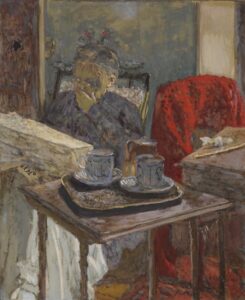COURS 2
[The nation] is an imagined political community – and imagined as both inherently limited and sovereign. It is imagined because the members of even the smallest nation will never know most of their fellow-members, or even hear of them, yet in the minds of each lives the image of their communion. […]
The nation is imagined as limited because even the largest of them […] has finite, if elastic, boundaries, beyond which lie other nations. […]
It is imagined as sovereign because the concept was born in an age in which Enlightenment and Revolution were destroying the legitimacy of the divinely-ordained, hierarchical dynastic realm. […]
Finally, it is imagined as a community, because, regardless of the actual inequality and exploitation that may prevail in each, the nation is always conceived as a deep, horizontal comradeship.
Benedict Anderson, Imagined Communities, pp. 6-7
Or l’essence d’une nation est que tous les individus aient beaucoup de choses en commun, et aussi que tous aient oublié bien des choses. Aucun citoyen français ne sait s’il est Burgonde, Alain, Taïfale, Visigoth ; tout citoyen français doit avoir oublié la Saint-Barthélemy, les massacres du Midi au xiiie siècle. […] La nation moderne est donc un résultat historique amené par une série de faits convergeant dans le même sens.
Ernest Renan, «Qu’est-ce qu’une nation?» (1882)
Das Zeitungslesen des Morgens früh ist eine Art von realistischem Morgensegen. (La lecture du journal, le matin au lever, est une sorte de prière du matin réaliste).
Georg Wilhelm Friedrich Hegel, philosophe allemand, Notes et Fragments, 1803-1806

